Fall 2021 Fellowship Courses
For our fall 2021 term—running from Sunday, October 17 to Thursday, December 16—we are offering a selection of 5-session, 3-session, and 8-session seminars. Below you will find brief course descriptions for every available class, and at the bottom of the page you can register for as many classes as you like, with the expectation of full participation and preparation.
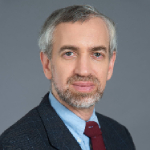
The Great Speeches of Israeli History
with Daniel Polisar, Shalem College
Sundays, 8:30–10:30 AM ET: Oct. 17, Oct. 24, Oct. 31, Nov. 7, Nov. 14, Nov. 28, Dec. 5, and Dec. 12
Led by Dr. Daniel Polisar, a Shalem College co-founder, political scientist, and Zionist historian, this seminar will examine some of the key moments, defining speeches, and great leaders during the two formative decades from the UN Partition decision in November 1947 through the Six-Day War of June 1967. We will carry out a historical analysis and close reading of speeches by Golda Meir, David Ben Gurion, Menachem Begin, Moshe Dayan, Gideon Hauser, Abba Eban, and Yitzhak Rabin, and conclude by drawing lessons about the Zionist rhetorical tradition, the development of Israel’s ethos, and leadership.
Dr. Daniel Polisar is co-founder and executive vice president of Shalem College, Israel’s first liberal arts college. He previously served as president of the Shalem Center from 2002-2013 and also served as its director of research, academic director, and editor-in-chief of its journal, Azure. Dr. Polisar has testified before the Knesset Constitution Committee on Israel’s character as a Jewish state, and since 2005, he has served on the board of Metzilah, the Center of Zionist, Jewish, Liberal and Humanist Thought. In 2006, he was appointed by the prime minister to be the first chairman of the National Herzl Council, responsible for commemorating the legacy of Theodor Herzl, a position he held for three years. Dr. Polisar received his B.A. from Princeton University in Politics and his Ph.D. from Harvard in Government. His research interests include Zionist history and thought, the history and philosophy of higher education, and Israeli constitutional development.
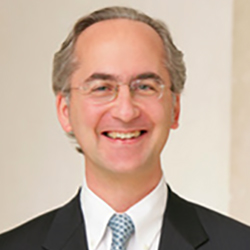
The Hebraic Spirit of America
with Harry Ballan, The Tikvah Fund
Sundays, 2:30–4:30 PM ET: Oct. 17, Oct. 24, Oct. 31, Nov. 7, and Nov 14
Led by intellectual historian and preeminent lawyer Dr. Harry Ballan, this course will explore the influence of Hebraic ideas—drawn from Tanakh, rabbinic, and midrashic sources—on the formation and spirit of the American political order.
Harry Ballan is a Senior Fellow of the Tikvah Fund and Founding Dean of both the Tikvah Online Academy and the Abraham Lincoln Teachers Fellowship. Dr. Ballan holds a BA, MA, MPhil, and PhD from Yale University and a JD from Columbia Law School. He clerked for Chief Judge Wilfred Feinberg of the United States Court of Appeals for the Second Circuit and was for many years a Partner at Davis Polk & Wardwell LLP, a leading international law firm where he is currently Senior Counsel. He has taught at several leading universities on subjects ranging from law and intellectual history to neuroscience, and was Dean of Touro Law School before joining Tikvah.
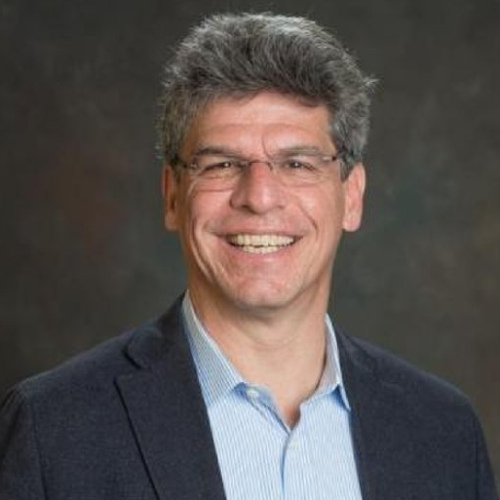
Plato’s Republic: A Jewish Reading
with Jacob Howland, University of Tulsa
Sundays, 6:30–8:30 PM ET: Oct. 17, Oct. 24, Oct. 31, Nov. 7, Nov. 14, Nov. 28, Dec. 5, and Dec. 12
REGISTRATION CLOSED—COURSE FULL
Led by Dr. Jacob Howland, a renowned political philosopher and author of Plato and the Talmud, this seminar will undertake a careful reading of Plato’s Republic, read with Jewish questions in mind and in conversation with seminal Hebraic texts and ideas. Note: this is the first in a trilogy of seminars we will offer—on Plato, Homer, and the Greek tragedies—looking at the relationship between Jewish vs. Greek ideas of human nature and the moral-theological-political order.
Jacob Howland is McFarlin Professor of Philosophy (emeritus) at the University of Tulsa. He earned a BA from Swarthmore College and a PhD from Penn State. His research focuses on ancient Greek philosophy, history, epic, and tragedy; the Hebrew Bible and the Talmud; Kierkegaard; and literary and philosophical responses to the Holocaust and Soviet totalitarianism. His most recent book is Glaucon’s Fate: History, Myth, and Character in Plato’s Republic (Paul Dry, 2018). His other books include Plato and the Talmud (Cambridge University Press, 2011) and Kierkegaard and Socrates: A Study in Philosophy and Faith (Cambridge University Press, 2006).
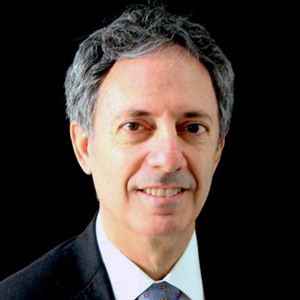
Is Political Philosophy Useful in Government? Lessons from the State Department’s Reports on China and on Human Rights
with Peter Berkowitz, The Hoover Institution
Mondays, 2:30–4:30 PM ET: Oct. 18, Oct. 25, Nov. 1, Nov. 8, and Nov. 22
Led by former Director of Policy Planning at the U. S. State Department and Hoover Institution Senior Fellow Peter Berkowitz, this seminar will examine two high-level government reports—the “Report of the Commission on Unalienable Human Rights” and the report on “The Elements of the China Challenge”—to explore how political philosophy informs and illuminates the most serious policy challenges facing America today. Dr. Berkowitz will reflect directly on his experience leading the State Department teams that produced these high-level policy assessments.
Peter Berkowitz is the Tad and Dianne Taube Senior Fellow at the Hoover Institution, Stanford University. From 2019-2021, he served as the Director of the State Department’s Policy Planning Staff, executive secretary of the department’s Commission on Unalienable Rights, and senior adviser to the Secretary of State. He is a 2017 recipient of the Bradley Prize, and serves as dean of studies for The Public Interest Fellowship.
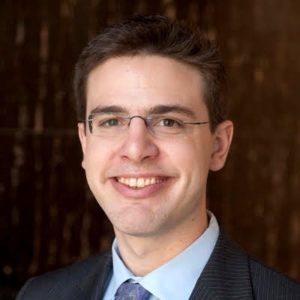
The Conservative Idea of Human Nature: On Irving Kristol
with Matthew Continetti, American Enterprise Institute
Mondays, 6:30–8:30 PM ET: Oct. 18, Oct. 25, Nov. 1, Nov. 8, and Nov. 15
REGISTRATION CLOSED—COURSE FULL
Led by conservative intellectual and AEI Fellow Matthew Continetti, this course—focused on the seminal essays and ideas of neoconservative “godfather” Irving Kristol—will launch our series on the major conservative thinkers of the modern era. Kristol was a prolific essayist, founder of magazines, and adviser of presidents and policymakers. As a thinker, he connected the dilemmas of American political and cultural life—capitalism vs socialism, the failures of the welfare state, the rise of the counterculture—with the deepest questions of human existence. He believed that most political questions ultimately pointed us back toward religious questions, and his incisive and always witty writings remain as relevant as ever.
Matthew Continetti is a resident fellow at the American Enterprise Institute, a contributing editor at National Review and a columnist for Commentary magazine. He was the founding editor and the editor-in-chief of The Washington Free Beacon and is the author of books on the Republican Revolution and on Sarah Palin. His articles and reviews have appeared in the New York Times, Washington Post, and Wall Street Journal. Mr. Continetti teaches a course on the conservative intellectual movement for the Hertog Political Studies Program and is a regular panelist on “Meet the Press,” “Meet the Press Daily,” and “Special Report with Bret Baier.”
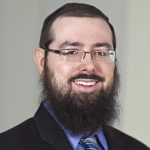
Can School Choice Save Religious Education in America? A State-by-State Analysis
with Jason Bedrick, EdChoice
Mondays, 6:30–8:30 PM ET: Nov. 29, Dec. 6, and Dec. 13
Led by EdChoice Policy Director and school choice movement leader Jason Bedrick, this course will examine the current state of play in advancing vouchers, tax credits, education savings accounts, and other policies aimed at expanding educational freedom in America. We will study where things stand in key states across the country, and we will focus on the specific issue of what these potential education reforms–and recent court cases–might mean for families and communities seeking religious schooling for their children.
Jason Bedrick is Director of Policy at EdChoice. Previously, he was a Policy Analyst with the Cato Institute’s Center for Educational Freedom. He also served as a legislator in the New Hampshire House of Representatives and was a Research Fellow at the Josiah Bartlett Center for Public Policy, where he focused on educational choice. Mr. Bedrick received his Master’s in Public Policy, with a focus in education policy, from the John F. Kennedy School of Government at Harvard University. He also holds a B.A. in Religious Studies from the Rabbinical College of America and a B.S. in Business Administration from Babson College.
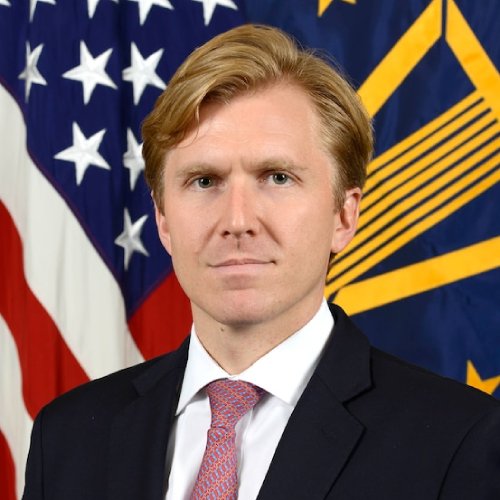
American Defense Strategy in an Age of Great Power Conflict
with Elbridge Colby, WestExec Advisors
Tuesdays, 2:30–4:30 PM ET: Nov. 30, Dec. 7, and Dec. 14
REGISTRATION CLOSED—COURSE FULL
Led by Strategy of Denial author and former Pentagon official Elbridge Colby, this course will examine the fundamental issues and choices America faces in determining its defense strategy in this much more competitive era. We will proceed through the key conceptual issues a defense strategy should address, starting from how the nation’s overall grand strategy should shape its defense strategy and leading us to frame how to think about the critical choices the nation’s defense decisionmakers must make.
Elbridge “Bridge” Colby is the Principal and Co-Founder of The Marathon Initiative and former Director of the Defense Program at the Center for a New American Security, where he led CNAS’ work on defense issues. Previously, Bridge served as the Deputy Assistant Secretary of Defense for Strategy and Force Development from 2017-2018. In that role, he served as the lead official in the development and rollout of the Department’s preeminent strategic planning guidance, the 2018 National Defense Strategy, which focuses the Department on the challenges to U.S. military superiority posed by China and Russia and therefore prioritizes sustaining the Joint Force’s warfighting edge against these major power competitors.
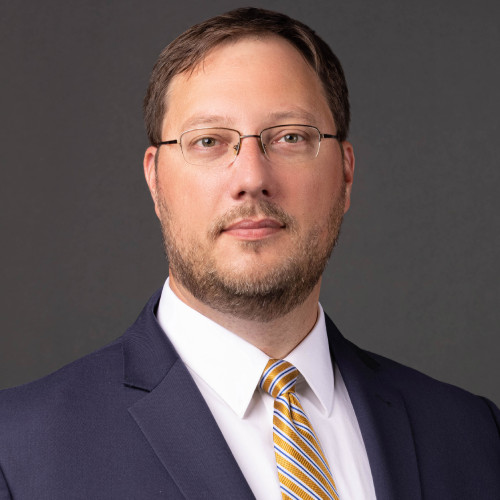
Religion and Constitutional Government: A View from the Courts, the States, and the Culture
with Adam White, American Enterprise Institute
Tuesdays, 6:30–8:30 PM ET: Nov. 30, Dec. 7, and Dec. 14
REGISTRATION CLOSED—COURSE FULL
Led by Adam White, a senior fellow at the American Enterprise Institute and co-director of the Gray Center for the Study of the Administrative State, this seminar will examine current controversies that illustrate timeless questions of religion, government, and culture. We will review recent and upcoming Supreme Court cases, policy debates, and the deeper cultural battles about religious vs. secularist values in the public and private spheres.
Adam White is a senior fellow at the American Enterprise Institute, where he focuses on American constitutionalism, the Supreme Court, and the administrative state. Concurrently, he is assistant professor of law and the director of the C. Boyden Gray Center for the Study of the Administrative State at the Antonin Scalia Law School at George Mason University.
Register for Your Courses Below